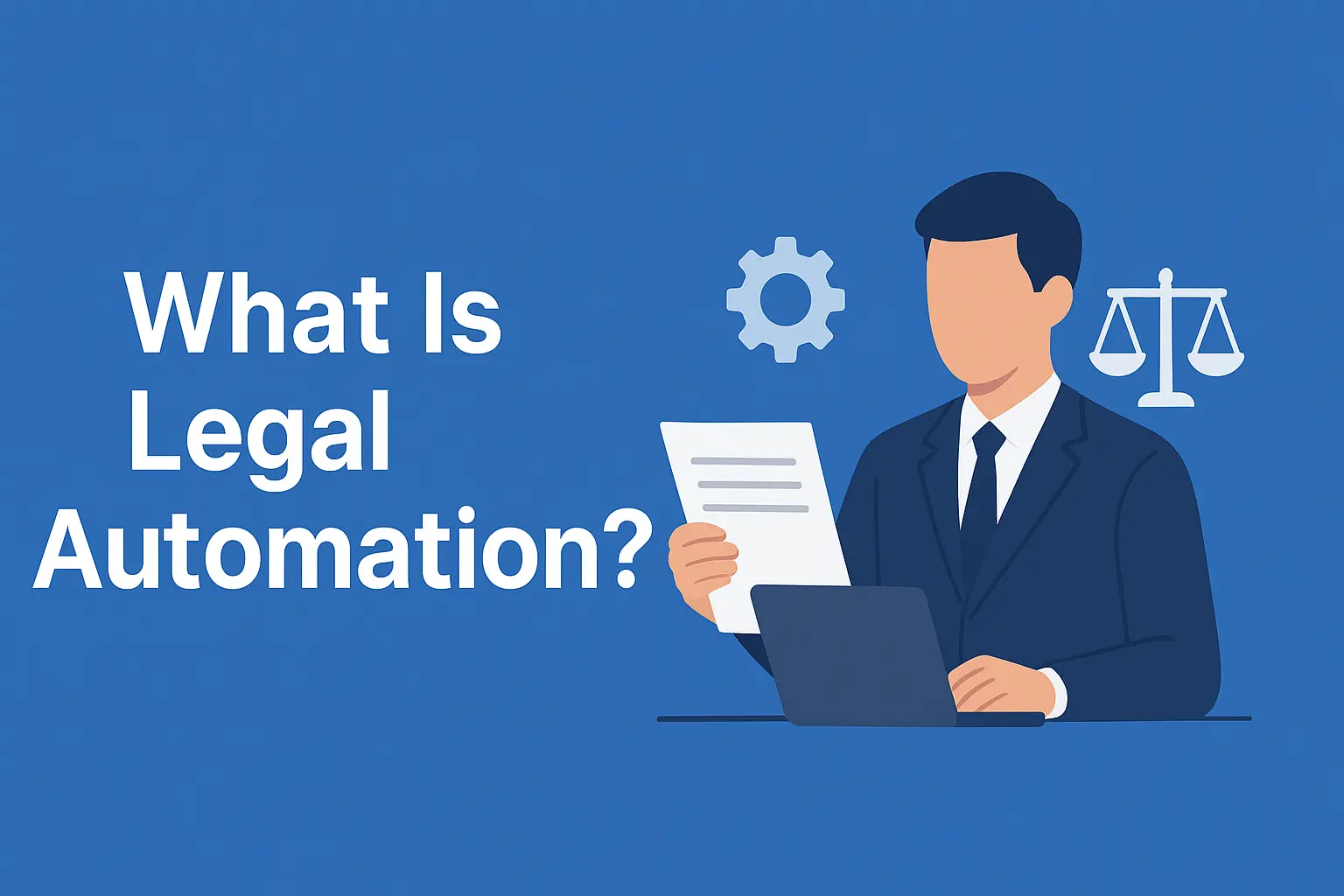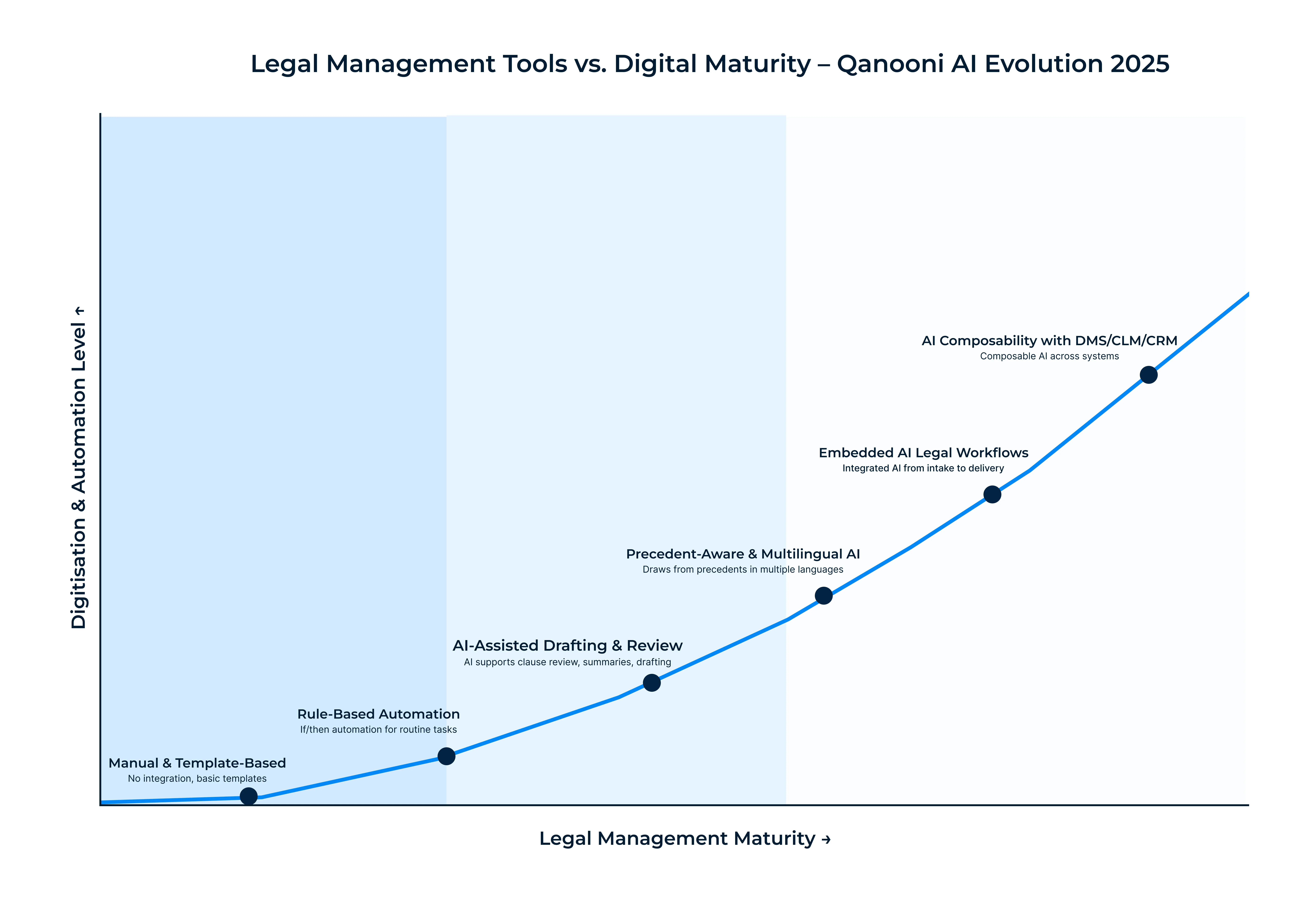
What Is Legal Automation? A Guide for Law Firms in 2025
Legal automation is reshaping how law firms operate in 2025, from drafting contracts faster to managing compliance with precision. But what is it, how does it work, and why does it matter for your practice? This guide breaks it down with a focus on how Qanooni enables lawyers to run end-to-end, lawyer-led AI workflows without losing the human element.
What Is Legal Automation?
Definition: Legal automation is the application of technology to streamline or fully automate repeatable legal workflows, freeing lawyers to focus on higher-value strategic work.
Legal automation refers to the use of technology, particularly AI-driven tools, to perform routine legal tasks with minimal human intervention. These tasks can include document drafting, contract review, compliance checks, matter management, and more.
Increasingly, firms are looking to AI legal workflow automation to standardise processes and improve matter throughput.
Why Law Firms Are Adopting Legal Automation in 2025
According to Gartner's 2024 Hype Cycle for Legal and Compliance Technologies, legal automation tools are now entering the mainstream adoption phase, moving beyond early experimentation to become core operational infrastructure for forward-thinking firms.
Similarly, the 2024 Thomson Reuters State of the Legal Market report found that firms using automation experience 8–12% higher matter throughput, with lawyers saving 8–10 hours per week. This is time they can redeploy toward billable work or complex strategic matters.
Benefits of Legal Automation

- Time Savings: Streamline repetitive tasks like NDAs, compliance reports, and due diligence checklists.
- Consistency: Reduce errors by applying standardised templates and playbooks.
- Scalability: Handle a larger caseload without proportional increases in staff.
- Client Satisfaction: Deliver faster turnaround times and transparent pricing.
- Automated legal document review ensures that every contract is checked against your specific risk and compliance criteria.
Legal Automation in the Context of Maturity & AI Evolution

This Qanooni AI Evolution 2025 Legal Management Maturity Curve shows how legal automation evolves from basic manual processes to fully composable AI systems integrated across your document, contract, and client management environments.
What Legal Automation Is Not
It is important to distinguish legal automation from the idea of replacing lawyers.
Qanooni was built to keep the human lawyer and their intellectual property at the centre. Automation is an accelerator, not a substitute.
Evaluating a Legal Automation Platform
When assessing tools, consider:
-
Jurisdictional Fit: Does it handle your region's regulatory requirements?
UK: The Solicitors Regulation Authority (SRA) has highlighted automation adoption as a strategic focus for compliance and efficiency.
UAE: The Dubai Legal Affairs Department has issued guidance encouraging the responsible use of AI and automation in legal services. -
Customisation: Can you run reviews using your own clauses, precedents, and playbooks?
-
Integration: Does it work inside your existing tools (e.g., Microsoft Word, Outlook)?
-
Security:
Compliance with ISO 27001 ensures that platforms maintain internationally recognised data security standards.
GDPR guidance from the European Data Protection Board emphasises transparency in automated decision-making when handling personal data.
Qanooni's Approach to Legal Automation
Qanooni is built to preserve your style, tone, standards, and playbooks in every automated task.
Whether generating a first draft or reviewing a contract, the platform draws directly from your own precedent documents, not generic templates, and applies your preferred formatting, language, and risk thresholds.
This ensures that every output reflects your firm's unique voice and professional standards, regardless of jurisdiction. As a global platform, Qanooni supports lawyers operating across multiple legal systems and languages, adapting to both common law and civil law frameworks while meeting local compliance requirements.
Qanooni also enables automated clause review using your custom playbooks, flags missing or non-standard terms, and produces redlines directly in Microsoft Word. It is designed to meet the lawyers where they work, integrating seamlessly into the tools and workflows you already use.
FAQs About Legal Automation
Q: Will legal automation replace lawyers?
A: No. It complements your expertise by handling repetitive tasks so you can focus on strategy.
Q: Is legal automation secure?
A: Yes. Platforms like Qanooni follow ISO 27001 and GDPR standards to ensure client data protection.
Q: Does it work in multiple jurisdictions?
A: Yes. Qanooni adapts to common law and civil law systems, with jurisdiction-specific playbooks and global language support.
Next Steps
If you want to see how Qanooni can save you 8–10 hours per week while increasing matter throughput, book a demo today.